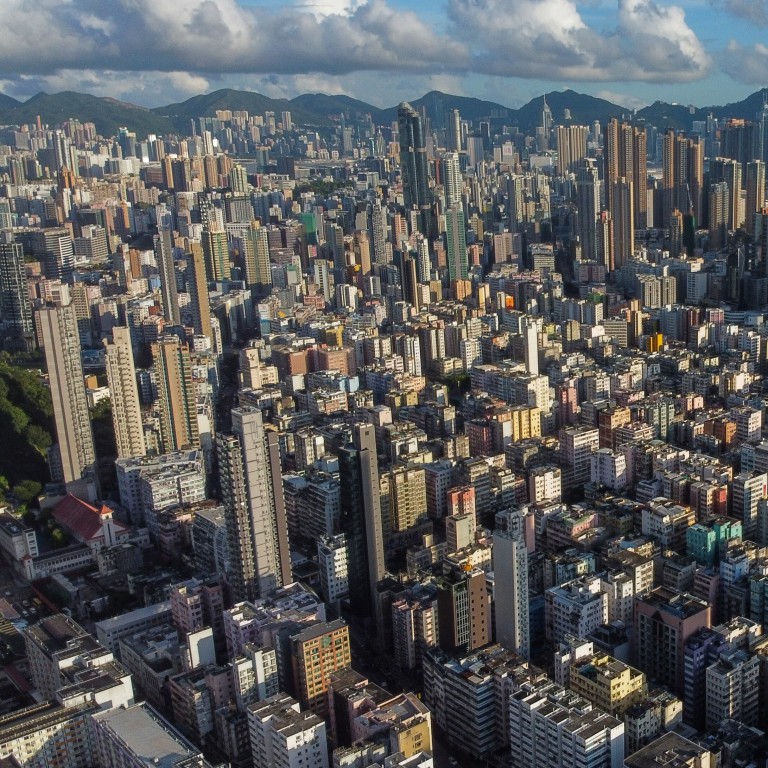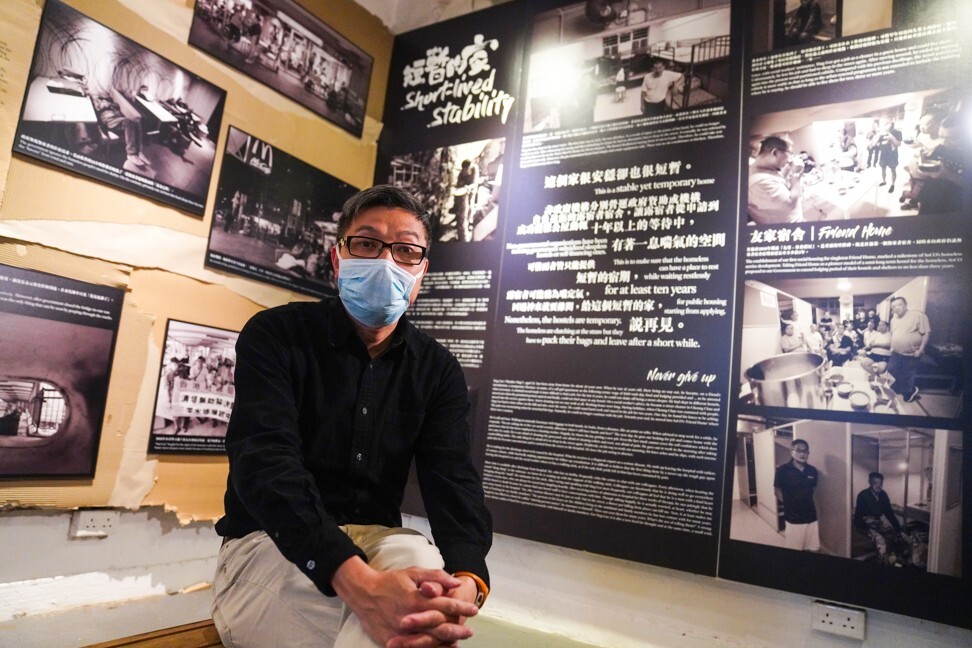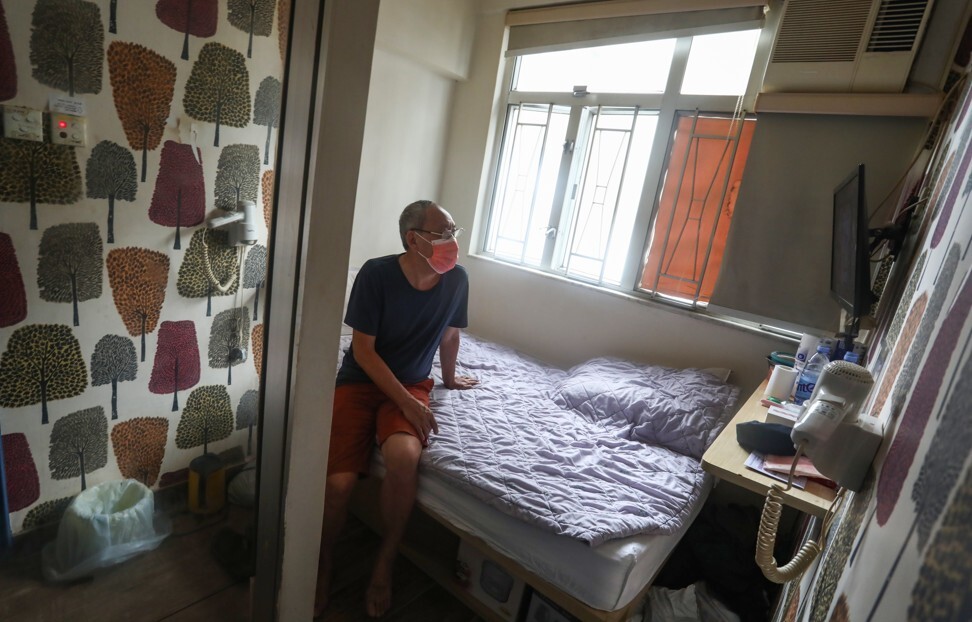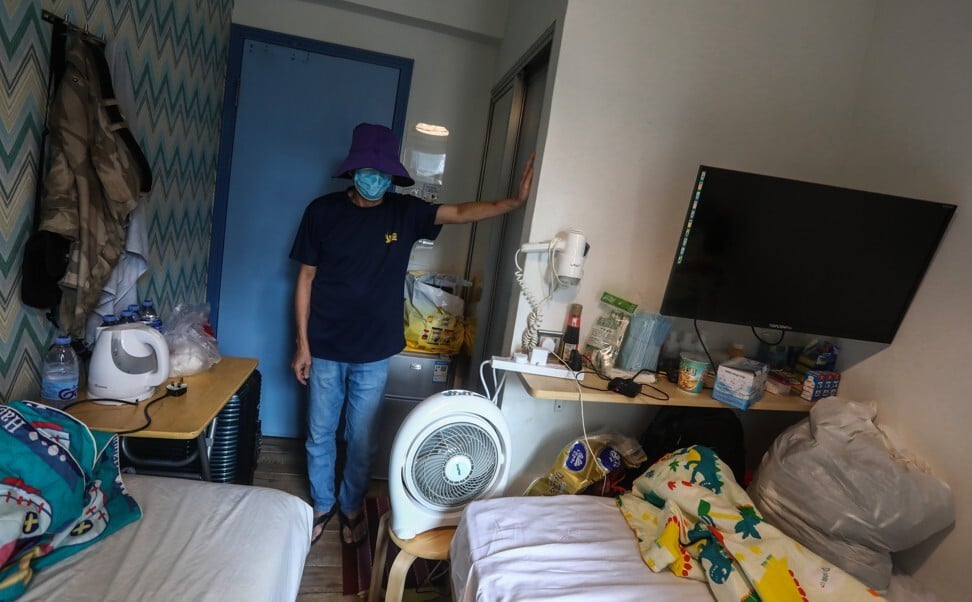
Hong Kong housing: push to turn empty hotel rooms into temporary flats trips over red tape
- The government wants to hand over 800 unoccupied hotel and guest house rooms to residents stuck in the years-long queue for public housing
- But some operators complain that offering longer leases is difficult when many must renew their licences annually
A pilot scheme to find 800 rooms at hotels and guest houses to use as transitional accommodation for residents waiting for public flats in Hong Kong has tripped over red tape, according to a partnering non-profit organisation.
The programme is intended to provide the residents with at least two years’ housing. But according to the Society for Community Organisation (SoCO), many guest houses are licensed annually and the lack of absolute certainty over their future makes it difficult to offer longer leases.
“The risk is that if their licence gets suspended after a year, we will have to find another guest house for the tenants,” said SoCO community organiser Ng Wai-tung.
Ng said that even though the Transport and Housing Bureau, which was in charge of the scheme, allowed flexibility in signing 12-month leases, quickly finding new accommodation for tenants if the licence was terminated after a year remained a challenge.
Border area near Shenzhen has potential for more projects, homes: Paul Chan
Chief Executive Carrie Lam Cheng Yuet-ngor announced the scheme for people in the queue for public housing when she delivered in her annual policy address last November.
They face an average wait time of almost six years, and the number of applicants has grown to more than 150,000, many of whom are forced to live in rundown subdivided flats in the interim.
The pilot programme, subsidised by the Community Care Fund, aims to enlist 800 rooms from hotels and guest houses. The government subsidises a portion of the rent, while NGOs are responsible for finding tenants from one or two-person households and negotiating leases of at least two years.
The scheme, estimated to cost the government HK$95 million (US$12 million), will last for three years.

Ng said that after searching for six months, SoCO managed to secure only 39 rooms at guest houses in Yau Tsim Mong district, just under half its target of 80.
Even when the organisation located suitable guest houses that were accessible, centrally located and clean, some owners could not meet the scheme’s minimum requirement of a two-year lease because of the annual renewal of their permits.
The Home Affairs Department said the licensing regime was meant to ensure premises met building and fire safety standards.
In cases where a hotel or guest house taking part in the programme found itself up for recertification the Office of the Licensing Authority “would adopt a pragmatic approach and provide all possible facilitation”, the department said.
Hotels and guest houses not yet sold on government’s transitional housing plan for unused rooms
But other guest house owners viewed the situation differently and welcomed their role in the temporary housing plan.
“I don’t need to hunt for customers, and I have a stable income now,” said one owner, who had rented all eight rooms at her guest house in Tsim Sha Tsui to tenants of the scheme. “It’s a double win for both those who are waiting for public housing and small guest house owners like us.”
Since October 2019, when anti-government protests were rocking the city, her income has dropped by 70 per cent of its usual level, she said. She could barely break even by renting out her rooms to monthly tenants, she complained.

The operator signed up for the pilot housing scheme after hearing about it earlier this year, as she did not expect the travel industry to recover any time soon.
“Hotels aren’t keen on the programme because they have other sources of income, but the reaction among small guest house owners is very enthusiastic,” she said.
But as she described it, the process was not entirely smooth. She submitted her application to join the programme in April, but did not hear back from the government, forcing her to liaise directly with an NGO, she said, adding: “The government has been pretty passive. It feels like they pushed out this scheme and then left us to figure it out ourselves.”
Researchers sceptical about plan to use hotels, guest houses as transitional housing
Her tenants who moved in earlier this month expressed satisfaction with the programme.
“It’s a lot cleaner than in my old place, where I used to get bitten by bugs,” said resident Mak Man, 64, who is single and hopes to resume working in the logistics industry once the pandemic subsides. “I don’t have anything to be dissatisfied about and all my neighbours are friendly too.”
Resident Liu Shu, 68, a former dishwasher who is jobless, single and currently sharing a room with a friend, said: “At least the rent here is stable unlike at my old place, where they marked up the rent every couple of months.”

Both men have been waiting for public housing for a year and a half. Their previous flats measured just slightly larger than 100 sq ft, and Mak paid HK$3,600 a month for a single unit with a bathroom, while Liu shared a double that had a bathroom with a friend for which they paid HK$5,200 per month.
According to Ng, at least 50 per cent of tenants recruited by NGOs must have been on the public housing waiting list for three years or longer.
All the rooms at the guest house where Mak and Liu now stay come with bathrooms attached and range in size from 70 sq ft to 110 sq ft. Single-person units cost HK$2,515 a month after the government subsidy, while doubles went for HK$4,400.
Ng also explained that the scheme targeted households consisting of one or two people only as guest house rooms were too small for large families. They also lacked communal kitchens, which could pose a challenge to parents who wanted to consistently ensure nutritious meals for their children.
“We welcome the programme as an NGO because it provides those waiting for public housing with a decent living environment, such as individual bathrooms and windows in their rooms,” Ng said. “We’ve promised the government that we will find 80 guest house rooms in total, and we are confident that we can meet that target in the next three months.”
